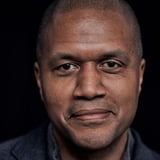Summary
A large federal agency was interested in improving the experience that individuals have with their digital services, as well as the velocity at which they were able to improve those services. But through our research, we found that they didn't have the design roles, tools, or processes in place to support this goal and make it successful. As a digital services firm that specializes in human-centered design and design ops, we came up with a plan to get them where they needed to be. We started by having a difficult conversation with them about design maturity, what it would take to be successful, and how design ops could help. We then introduced a series of training sessions on human-centered design, which prepared us to have conversations about design roles and processes, as well as tools. And finally, we were able to collaborate with them through a series of engagements to see how these things should work in practice. Through our experience, we learned this is not an uncommon challenge. There are likely many entities (both public and private) that know they need to evolve their design practices, but don’t know how. By sharing how we introduced design ops to a federal client, we hope to inspire others to help promulgate design ops in a wider variety of sectors and client types.
Key Insights
-
•
Federal government contracting imposes long timelines, strict policies, and limited tool adoption, challenging UX implementation.
-
•
Initial contracts may have fixed scopes that do not align with the actual user or organizational needs discovered later.
-
•
The agency’s design maturity was at a limited stage, lacking strategic UX culture, process integration, and measurable outcomes.
-
•
Delivering a design system without addressing foundational cultural and process barriers is insufficient for sustainable UX improvements.
-
•
Human-centered design training for non-designers builds empathy and broadens organizational understanding of UX benefits.
-
•
Government teams often rely on outdated or inappropriate tools like MS Paint, hindering effective design communication.
-
•
Internal champions, especially design managers on related teams, are crucial for advocacy and change management.
-
•
Combining top-down support and bottom-up engagement helps overcome entrenched silos and fosters adoption of design ops.
-
•
Frequent design reviews and biweekly syncs, though initially resisted, can become valued forums that enhance product quality.
-
•
Change in government design culture is incremental, often non-linear, requiring patience, persistence, and difficult conversations.
Notable Quotes
"It pains me to say, one of the tools they were using was MS Paint."
"Dropping a design system in this environment was not going to magically get them the improved experience they hoped for."
"It was finally the pathway to get them what they really wanted: a more intuitive and consistent user experience."
"People who work in government tech are some of the most passionate because they believe in the mission."
"Government culture is not like tech culture; IT constraints mean tools like Sketch are still a win."
"We basically wrote an HCD book with 25,000 words of notes for the training workshop."
"Early on, getting stakeholders to attend syncs felt like pulling teeth, but later it became their favorite meeting."
"Design ops is the bridge between silos and agencies that otherwise tend to be somewhat stagnant."
"Don’t ever be afraid to have those difficult conversations because they’re the most important ones to have."
"It’s about getting our stakeholders what they need, not just what they ask for."
Or choose a question:
















More Videos

"Product folks face challenges translating clear founder or business goals down to motivating operational teams."
Christian Crumlish Aditi Ruiz Johanna Kollmann Catt SmallMorning Insights Panel
December 6, 2022

"The success in insights is when you become viral — when the C-suite claims the insight as their own."
Dr. Jamika D. Burge Jemma Ahmed Chris GeisonBridge Building across Research Disciplines
August 26, 2021

"During roadmapping time, let's bring our roadmaps together and discover synergies."
Brad Peters Anne MamaghaniShort Take #1: UX/Product Lessons from Your Industry Peers
December 6, 2022

"When we empower others, we are actually reinforcing the hierarchy we seek to subvert."
Victor UdoewaRadical Participatory Research: Decolonizing Participatory Processes
March 9, 2022

"We have the same goal in mind – to give the customer the best experience – but we use different tools and languages."
Wendy JohanssonAn Education on Design Education for Orgs
June 10, 2021

"A true design system must have a single source of truth in code."
Dawn ResselFull-Stack User Experiences: A Marriage of Design and Technology
June 9, 2016

"Designers want more time to prototype and really ensure what ships is successful, but we just don’t have enough people or time."
Kevin M. HoffmanTheme 2: Enterprise Team Journey
June 3, 2019

"AI is a great automated assist, but it is not yet an insight generator like we hope for in UX research."
Louis Rosenfeld Billy Carlson Jon Fukuda Maria TaylorHow AI will Change DesignOps Tooling
October 3, 2023

"Ethics and power in design are changing and need to continue evolving over the next decade."
Kara KaneTheme One Intro
November 16, 2022

















